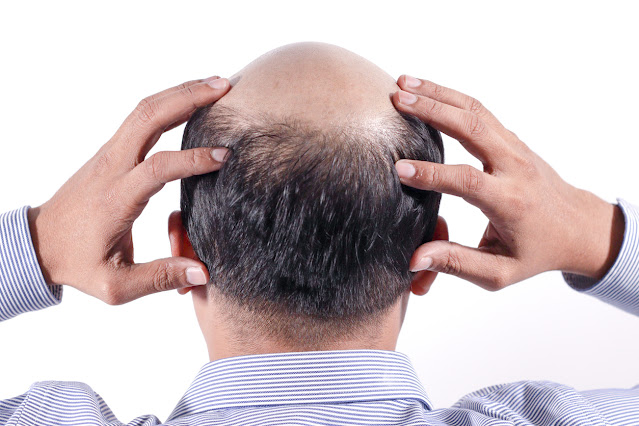Hair transplantation is quickly becoming one of the most popular cosmetic procedures. According to the best hair transplant surgeon in India, Patients' confidence in hair transplants is boosted by techniques like FUE, FUT, and Sapphire Hair Transplant. Furthermore, these procedures produce natural-looking results, which is why an increasing number of people are opting for hair transplants.
However,
there are a few items you should avoid in the first few weeks if you want to
see long-term gains. This article will discuss eight things to avoid following
a hair transplant treatment. Keep in mind that you will be anaesthetized for
the hair transplant surgery. As a result, please make sure that you have
someone with you to drive you back home.
1. Avoid
Sleeping Flat:
Despite
the fact that hair transplantation is a small treatment, it is nonetheless a
surgery. Swelling around the surgery site, like other procedures, may be a
typical sign of the patients' experience. As a result, for the first seven days
after surgery, the patient should sleep with his or her head elevated at a
45-degree angle. Sleeping in this position reduces edoema and speeds wound
healing. Avoid sleeping on your stomach or side, and don't rub your new
hairline on your pillow. Cover yourself with a large blanket or sleep in a
recliner to minimise tossing and turning at night.
2. Avoid
Hair wash:
Within
the first 48 hours after your hair transplant, you should avoid washing your
hair. On the third day, give your hair a gentle wash. Use a gentle shampoo and
avoid squeezing the shampoo on the scalp suggested by the best hair transplant surgeon in Kolkata. Instead,
pour the shampoo into a cup and massage it into your scalp gently with your
hands. Excessive scratching or rubbing should be avoided.
3. Avoid
Styling Hair Products:
The
harsh chemicals in styling products are detrimental to your hair transplant
procedure's success. Before using a dye or any other style product, wait at
least 4 weeks. For several weeks after the transplant, the transplanted
follicles are in an extremely delicate state, so give them all the attention
they need.
4. Avoid
De-Hydration:
We
can't picture what life would be like without water. However, after a hair
transplant, staying hydrated is much more important. When your body is properly
hydrated, you will not only feel better, but your recovery will be quicker as
well. Drink 10% more water than usual for a few weeks following surgery, and it
will make a significant impact in your overall recovery. There are a plethora
of mobile apps that will remind you to drink water. The best way to tell if
you're getting enough water is to look at the colour of your pee. Urine should
be translucent to extremely pale yellow in colour.
5. Avoid
ice and sun directly to the scalp:
Because
it is important to stay hydrated, do not apply ice directly to the areas of
your scalp where you have transplanted hair. Avoid touching the area during the
first three days. You can lightly touch your scalp after 72 hours, but only if
necessary. If your scalp is itchy, instead of scratching it, use conditioner.
For the first two weeks after your hair transplant, avoid direct sunlight
between 10 a.m. and 2 p.m.
6. Avoid
strain and sweat:
Do
not indulge in strenuous exercise, such as swimming or weight lifting, during
the first seven days after the therapy. Sweat is abundant during any of these
activities, and it affects the scalp as well. Stay away from steam rooms and
saunas as well. During these seven days, avoid sweating and keep your heart
rate and blood pressure in a safe, normal range. After that, you can go on
walks, do yoga, or meditate.
7. Avoid
Drinking and Smoking:
Because
alcohol is a recognized dehydrator, it should be avoided for the first five
days following treatment. As a result, drinking alcohol prolongs recovery time,
increases discomfort, raises blood pressure to dangerous levels, and lowers
blood supply and vital nutrients to the brain. Additionally, for a month
following your therapy, refrain from smoking, using nicotine e-liquids,
nicotine gum, or wearing nicotine patches. All of these raise your blood
pressure. However, it is understood that these habits cannot be broken the day
after surgery. As a result, it is advised that you begin reducing your drinking
and smoking intake while arranging for a hair transplant so that you can
continue doing so after the procedure.
8. Avoid
these foods and drinks:
While
you may not feel like cooking during your recovery, eating a well-balanced,
nutritious diet is essential for maintaining healthy blood flow and hydration.
Hair that is thick, healthy, soft, smooth, strong, and gorgeous will result
from eating more nutrients. Fast food, drink, processed juice, baked goods, and
other sugary items should be avoided. Fast food is devoid in nutrients and
raises blood sugar levels.
It's
important to remember that fast food is often low in nutrition and high in
empty calories. Instead, consume calcium, magnesium, protein, iron, vitamin B6,
zinc, biotin, and protein-rich foods or supplements according to the best hair
transplant in India.

















